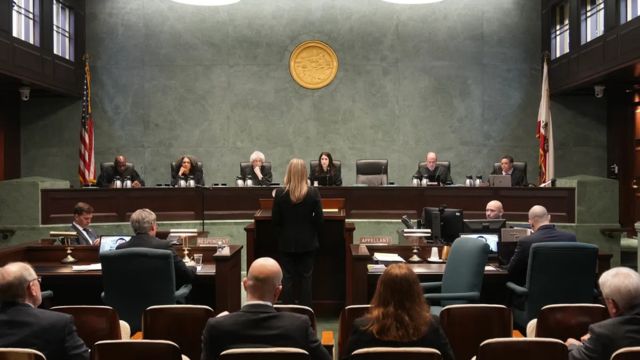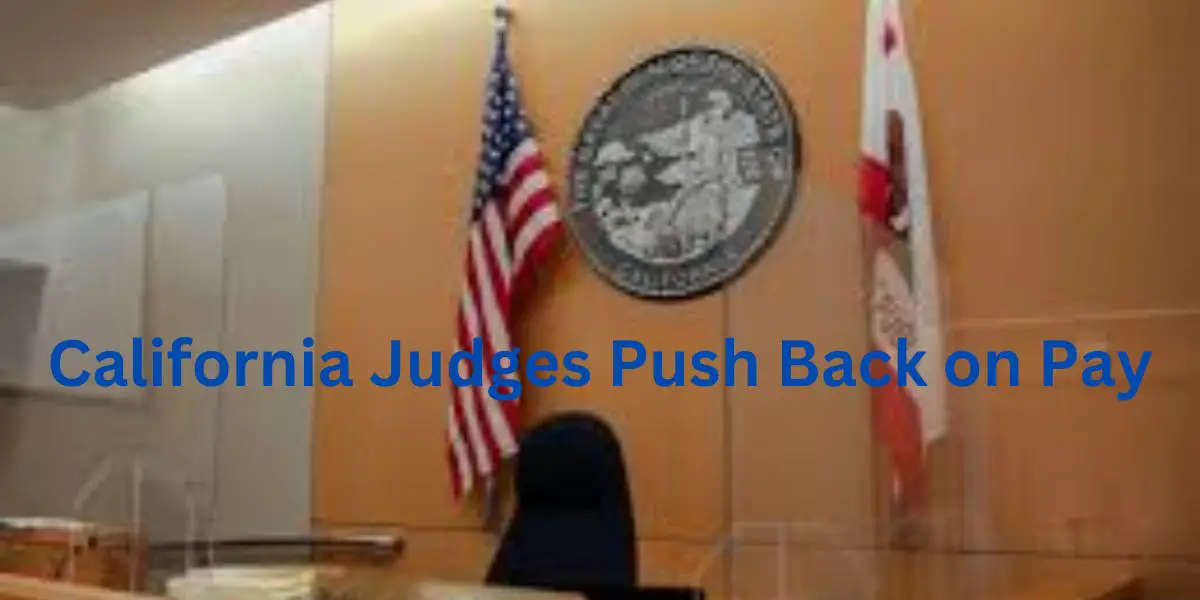California judges, citing long-standing concerns over inadequate compensation, have filed a lawsuit that could cost taxpayers millions of dollars.
The legal action, which challenges the state’s judicial pay structure, has escalated into a significant issue that may require substantial financial resources to resolve.
The judges argue that their pay has not kept pace with the rising cost of living and their growing responsibilities, leading to a dispute that could reshape how the state compensates its judicial officers.
The Basis of the Lawsuit
The lawsuit, filed by a group of California judges, claims that the state has failed to meet its constitutional obligations to provide fair and adequate compensation to members of the judiciary. According to the plaintiffs, the current pay for judges in California has not kept up with inflation or the increasing demands placed on the judicial system.
In California, judicial salaries are set by the state’s Legislature, and the judges argue that lawmakers have consistently underfunded their pay. The issue became particularly pronounced over the past decade, as the state experienced budget cuts, leading to stagnant wages for judicial officers. While other public sector employees have seen salary increases, the pay for judges has remained flat, leading many to feel undervalued and underpaid for the critical role they play in the state’s legal system.
The Financial Impact on Taxpayers
The outcome of this lawsuit could lead to a massive financial burden for California taxpayers. If the judges win their case, it could trigger significant retroactive pay raises for current and former judges. Legal experts estimate that the state may be required to pay out tens of millions of dollars in back pay, depending on the court’s ruling.
Beyond the immediate financial implications, the lawsuit could also result in ongoing increases to judicial salaries, which would further strain the state’s budget. This could have ripple effects on other areas of public service, potentially diverting funds away from education, healthcare, or infrastructure, which are already under financial pressure.

While the lawsuit is focused on judges’ compensation, it may have broader implications for other public-sector employees in California. If the court sides with the judges, it could set a precedent that prompts other groups of public employees to pursue similar claims, increasing the overall cost to taxpayers.
The Judges’ Perspective
Judges in California are quick to point out that their compensation is significantly lower than other professionals in similar fields. While many high-ranking state officials and executives in the private sector enjoy much higher salaries, judges remain among the lowest-paid professionals in California’s public sector.
Many of the judges involved in the lawsuit argue that the current salary system has led to a serious recruitment and retention problem. With the cost of living in California continuing to rise, particularly in high-cost areas like San Francisco and Los Angeles, qualified lawyers are often unwilling to accept judicial appointments due to the relatively low pay.
Confirmed! Tennessee Declares New Tax Status: State Income Tax Eliminated for Good
New Status Taxation Here! Washington Joins the Ranks of States That Don’t Levy a State Income Tax
Moreover, the workload for California judges has increased significantly over the years. Courtrooms are often overcrowded, with judges handling more cases than ever before, making it difficult for them to manage their caseloads and maintain the quality of their work. Judges argue that their salary should reflect the level of responsibility they bear, the complexity of the cases they oversee, and the long hours required to fulfill their duties.
The State’s Position
The state of California, however, has countered the claims made by the judges. Government officials argue that the state’s financial constraints make it difficult to allocate the funds necessary for substantial pay raises. California has faced significant budget challenges in recent years, including funding for public services, education, and healthcare, leaving little room for large increases in judicial salaries.
State representatives have also pointed out that, while judicial pay may not be as high as that of private sector lawyers or executives, judges are still among the highest-paid public officials in California. Additionally, the state argues that providing retroactive pay raises would only exacerbate the financial pressure the state is under, especially in light of other priorities that need funding.
The Bigger Picture: The Strain on California’s Judicial System
The pay disparity has led to concerns that the ongoing legal battle could have unintended consequences for California’s judicial system. The state already faces a shortage of judges in certain regions, and some worry that the lawsuit could make it even harder to recruit new judicial officers. The increased salary demands may lead to the state being less able to fill vacant positions, which would further strain an already overburdened court system.
Moreover, the public perception of the judicial system could be negatively impacted. Many residents may view the lawsuit as self-serving, especially as the cost of living continues to rise for ordinary Californians. The notion that judges are seeking large salary increases while other public servants face pay freezes or cuts could generate backlash, even though the judges argue that their compensation is not on par with the level of responsibility they hold.
What’s Next for the Lawsuit?
As the lawsuit progresses, it remains to be seen how the courts will rule. Legal experts suggest that the case could set important precedents for how public employees in California are compensated, and the final decision could have long-lasting consequences for the state’s budget. If the court rules in favor of the judges, lawmakers may have to find ways to increase funding for the judicial system without compromising other critical areas of public service.
At this stage, both sides are preparing for a lengthy legal battle, with the outcome uncertain. What is clear, however, is that the stakes are high—not only for California’s judges but also for the taxpayers who may be asked to foot the bill. As the case continues, residents will have to monitor the developments closely and be prepared for the potential fiscal fallout that could come with a ruling in favor of the judiciary.
Conclusion
California’s judges have filed a lawsuit over what they perceive as insufficient compensation, seeking a significant pay increase to align their salaries with the rising cost of living and the growing demands on their roles. If the judges prevail, it could result in millions of dollars in back pay and ongoing financial obligations for the state, potentially placing further strain on California’s budget.
While the state’s position is that its financial resources are stretched thin, the case raises larger questions about how the state should prioritize funding its public servants and address concerns about fairness in compensation. For now, all eyes are on the outcome of this high-stakes legal battle, which could redefine how the state compensates its judicial officers for years to come.




